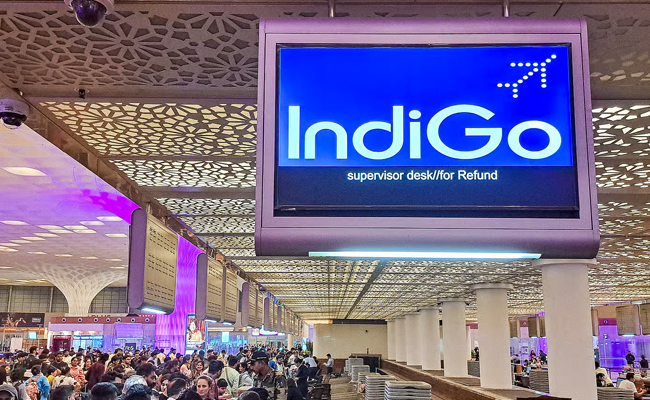Mumbai, Aug 23 : Global credit ratings, research, and risk analysis firm Moody's Investors Service expects the Indian economy to grow by around 7.5 per cent in 2018 and 2019.
However, the company expects the country's economy to grow at a higher rate of 7.7 per cent in the first quarter of 2018.
"We expect the Indian economy to grow around 7.5 per cent in 2018 and 2019. Economic activity grew by 7.7 per cent in the first quarter of 2018," Moody's Investors Service said in its Global Macro Outlook: 2018-19 (August 2018 Update) report.
"High frequency indicators suggest a similar outturn for the second quarter. Growth is supported by strong urban and rural demand and improved industrial activity."
According to the firm, PMI (Purchasing Managers Index) and the index of eight core industries (ECI) shows robust activity in the industrial sector.
"A normal monsoon together with the increase in the minimum support prices for kharif crops, should support rural demand," the report said.
"Thus, despite external headwinds from higher oil prices and tightening financing conditions, growth prospects for the remainder of the year remain in line with the economy's potential."
Besides, the agency said that the Reserve Bank of India (RBI) is expected to continue on a steady monetary policy tightening path into 2019.
It pointed out that a rise in core inflation and vulnerability to tightening external financial conditions as the main concerns behind the trend.
"Retail inflation in India has risen as per our expectations since mid-2017, but remains stable around 5 per cent. But core inflation has moved up in recent months to 6.2 per cent," the report said.
"The run up in energy prices over the past few months will raise headline inflation temporarily. The impact on food inflation from increased procurement prices to farmers, will be mitigated somewhat by the expected rise in farm output because of a good harvest."
In addition, the company said that the upside to inflation comes from strengthening demand, which is reflected in rising core inflation.
"We therefore expect the RBI to continue on a steady tightening path into 2019," the report said.
In July, the RBI had raised the benchmark repo rate by 25 basis points for the second time in two months to 6.5 per cent.
Let the Truth be known. If you read VB and like VB, please be a VB Supporter and Help us deliver the Truth to one and all.
Bengaluru (PTI): The Karnataka government has issued directions to municipal corporations across the state to regulate and prohibit feeding pigeons in public places, citing serious public health concerns.
Deputy Secretary to Government V Lakshmikanth has written to the Urban Development Department requesting it to issue directions to the Greater Bengaluru Authority (GBA) and all municipal corporations to take immediate steps to implement the measures.
In an official note dated December 16 issued by the Health and Family Welfare Department and released to the media on Wednesday, the department said uncontrolled feeding of pigeons in public places has resulted in large congregations of birds, excessive droppings and serious health concerns, particularly respiratory illnesses linked to prolonged exposure to pigeon droppings and feathers such as hypersensitivity pneumonitis and other lung diseases.
ALSO READ: Chinese GPS tracker found on seagull near Karwar Coast
"The commissioner, the Greater Bengaluru Authority and the Commissioners and chief officers of other municipal corporations shall take necessary action to mitigate the causes of dangerous disease spread by pigeon and enforce specified guidelines in their respective jurisdiction," the note said.
According to the department, these include a prohibition on feeding pigeons or causing pigeons to be fed in areas where it may cause nuisance or pose a health hazard to the public. Pigeon feeding shall be permitted only in designated areas in a controlled manner, subject to certain conditions.
"The designated areas may be selected in consultation with stakeholders. The responsibility for upkeep of the designated areas and compliance to the directions shall be taken up by some charitable organisation or an NGO. The feeding in designated areas shall be permitted only for some limited hours in the day," it said.
The note further stated that authorised officers of local authorities shall issue on-the-spot warnings and may impose fines for violation of the order, or lodge complaints to prosecute offenders under Sections 271 (Negligent act likely to spread infection of disease dangerous to life) and 272 (Malignant act likely to spread infection of disease dangerous to life) of the Bharatiya Nyaya Sanhita.
It also directed local authorities to conduct public awareness campaigns, including the display of signboards, banners and digital messages, explaining the health hazards associated with pigeon droppings and feathers, the content of the regulatory directions and penalties for violations, and alternative humane methods of bird conservation that do not endanger public health.





